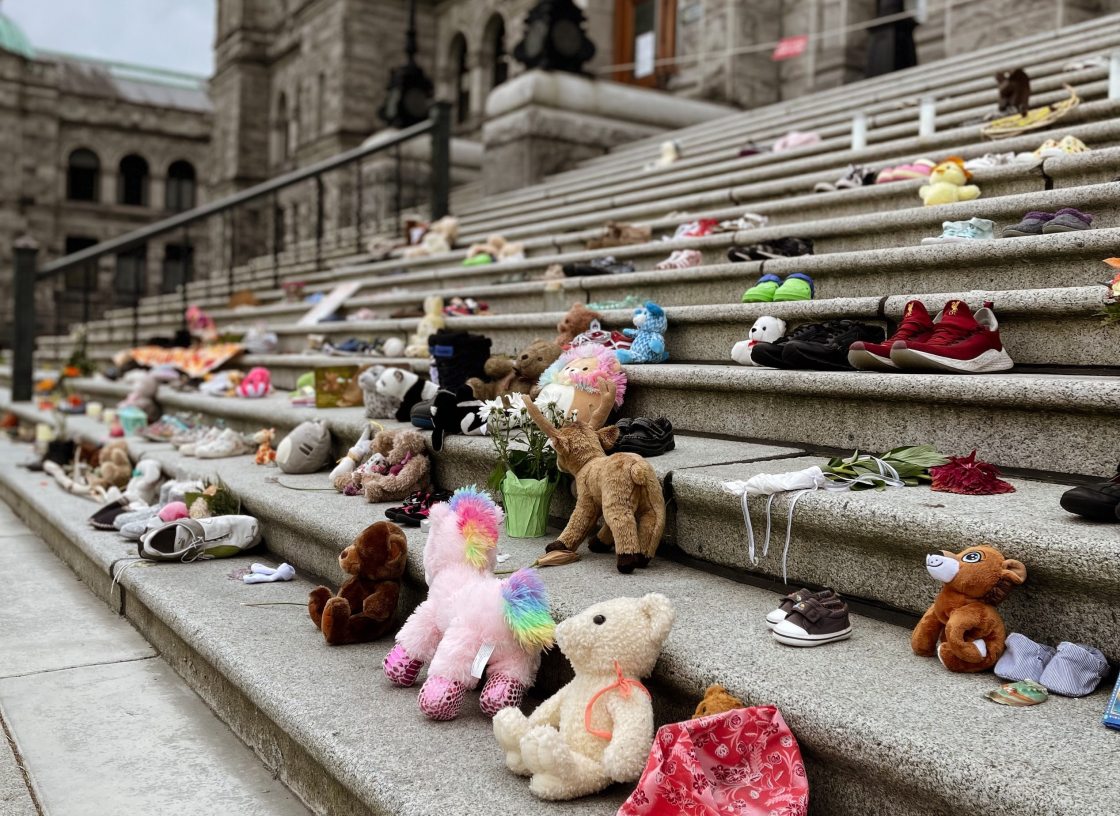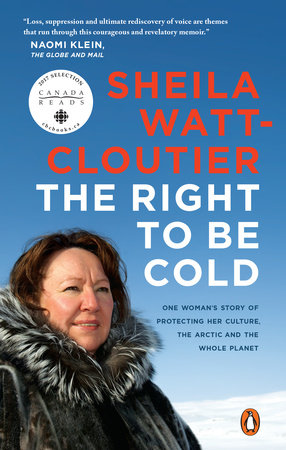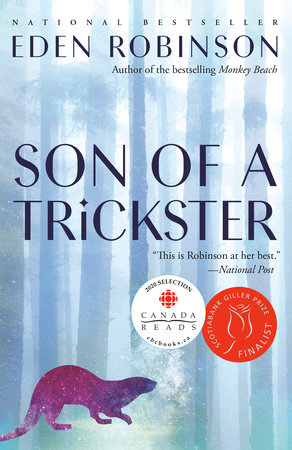Moving forward won’t be easy but non-Indigenous Canadians can do their part through acknowledgement, reflection and education
As of September 2021, more than 1308 unmarked graves have been unearthed across Canada. The horrific findings sparked widespread sadness, shame and anger throughout the nation. It was a rude awakening to the dark history plaguing Canada—a history that needs to be brought forth and fully acknowledged before any true reconciliation can begin.
The federal government has taken a step towards recognizing the long mistreatment of Indigenous people with the newly established National Day for Truth and Reconciliation on Sept. 30, which according to the government of Canada website, is a day to honour “the lost children and Survivors of residential schools, their families and communities.” While this action is a great way for Canadians to turn inward and reflect on the atrocities committed, there is still much more work to be done.
As non-Indigenous Canadians, we can do our part in carving a better path forward by educating ourselves on the previous and ongoing issues First Nations people are facing. This includes the crisis of Missing and Murdered Indigenous Women, Girls and two-spirit people (MMIWG2S) and the many Indigenous communities still lacking clean water.
We’ve gathered a list of books and podcasts we’ll be reading and listening to on this day of remembrance, by Indigenous voices who share powerful stories, and we encourage our readers to do the same.
Books:
1. Firekeeper’s Daughter by Angeline Boulley
When Daunis Fontaine—the protagonist of Boulley’s debut novel—witnesses a horrifying murder, she finds herself in the middle of a criminal drug investigation. Despite being an unenrolled, biracial tribe member of the nearby Ojibwe reservation and the child of a scandal, Fontaine agrees to go undercover as a confidential informant for the FBI.
But working with the authorities (who likely don’t have the reservation’s best interests in mind) doesn’t stop the 18-year-old from pursuing her own discrete investigation into the drug crisis plaguing her Ojibwe community that she’s often felt distant from. The YA thriller, which immerses readers into the Ojibwe culture and language, is an insightful read that sheds light on the high rates of substance abuse in Indigenous communities due in part to intergenerational trauma. Firekeeper’s Daughter has even caught the attention of Barack and Michelle Obama, whose production company Higher Ground is adapting the book into an original series for Netflix.
2. Bone Black by Carol Rose GoldenEagle
Carol Rose GoldenEagle is no stranger to the literary world. She is a highly accomplished novelist and poet, with Bone Black debuting as her first thriller.
After a night out at a pub together, Wren StrongEagle’s twin sister, Raven, goes missing. Though Wren files a police report, it seems that little is being done about Raven’s missing person’s case. Dismissed by local police, Wren believes that her sister’s case will not be properly investigated and decides to do things on her own terms. She takes justice into her own hands and while coming to terms with the path she has taken, Wren feels guided by a mysterious force every step of the way.
Though this story may be a work of fiction, the groundwork for the novel is heartbreakingly real. In Canada, thousands of Indigenous women, girls and two-spirited people have gone missing and have received very little attention in terms of media coverage and regard from the police and RCMP. Reading stories like this is an important step in understanding what is happening in Canada with the hope that awareness will lead to change.
3. The Right to Be Cold by Sheila Watt-Cloutier
It is impossible to discuss the climate crisis without Indigenous voices at the forefront. Many Indigenous cultures and practices include respecting the natural world and learning to coexist. But rising sea levels and warmer temperatures have salinated freshwater, affected food security and continues to threaten transport systems for Indigenous communities in eastern and northern Canada.
Sheila Watt-Cloutier has witnessed first-hand the devastating impacts of climate change in northern Canada. A world-renowned environmental and human rights advocate, Watt-Cloutier is an Inuk woman from the Arctic community of Kuujjuaq, Quebec. Growing up, she was immersed in traditional Inuit culture that not only gave her a sense of identity but also the knowledge of survival. Each year as more of the Arctic ice recedes, the land isn’t only at risk—the very essence of Inuit culture is as well.The Right to Be Cold is the culmination of Watt-Cloutier’s 25 years spent raising the alarm bells about the climate crisis and advocating for positive change. With her own life woven throughout the narrative, it is an inspiring story of resilience, commitment and what must be done to preserve the earth.
4. Son of a Trickster by Eden Robinson
Set in Kitimat, B.C., this novel mixes coming-of-age with Indigenous beliefs and lore. Jared is a pot-cookie dealing, drinking and smoking 16-year-old with a surprisingly compassionate heart. His mother is always angry and his father has another family to support but Jared will still do anything to keep the thread holding his family together, while also checking in on his elderly neighbours.
And while trying to get a grasp on his life, Jared is also experiencing blackouts and instances when ravens speak to him—no, not when he’s high. If that wasn’t enough oddity, his maternal grandmother is convinced that he isn’t human, and is in fact the son of a trickster god.
Son of a Trickster is the first book of the planned trilogy. In an interview with CBC, Robinson explained her inspiration behind the story: “The Trickster is also known as Wee’git. He’s a transforming raven and he has a very specific role in our culture. We tell our children Wee’git stories to teach them about protocol, or nuyum. But he teaches people this protocol by breaking all the rules.”Robinson goes on to explain that Wee’git is a very funny and lively character. This is reflected in her novel, which blends humour with tough themes to make for a dynamic read. Son of a Trickster was shortlisted for the 2017 Scotiabank Giller Prize and was adapted into a TV series in 2020.
5. Five Little Indians by Michelle Good
With the 2020 Governor General’s Literary Award for fiction and the 2021 Amazon Canada First Novel Award under its belt, it’s not hard to see why the debut novel of Crew writer Michelle Good is a must-read—especially for those who want to educate themselves on Canada’s not-so-distant history of erasing Indigenous culture.
The powerful and deeply insightful tale details the horrors of a Catholic-run residential school named the Mission. The haunting mental and physical aftermath is seen through the perspective of five children who were stolen from their families and subjected to unimaginable mistreatment and abuse. After their eventual release as teenagers, the quintet blindly ventures into the unfamiliar world of Downtown Eastside Vancouver in the 1960s. The reader follows along with each member of the group as they journey into adulthood on their own difficult paths, trying to come to terms with the unforgettable trauma they’ve endured.
It should go without saying that this book comes with multiple trigger warnings as dark topics are described in detail and can be hard to read. Brutally honest, Good gives readers a glimpse into the atrocities experienced by those who attended residential schools and the anguish survivors are still grappling with today.
Podcasts:
1. Unrooted
From bringing awareness to the MMIWG2S crisis to deconstructing the truth surrounding The Indian Act, ”Unrooted” is a five-episode podcast focused on uplifting Indigenous voices and discussing prevalent issues. The episodes, which run between 20 to 35 minutes in length, are hosted by the youth team behind the grassroots organization The Indigenous Foundation, including co-founders Sena Yenilmez and Meera Baswan.
Each episode is equally as important as the next and is easily digestible in five short parts. This is why it makes a great listen for non-Indigenous allies who want to familiarize themselves with Indigenous culture, stories and the ongoing crises First Nations people face. “Unrooted” is available to listen to on many streaming platforms, including Spotify and Apple Podcasts.
2. Still Here, Still Healing
The horrific stories of residential schools are undoubtedly difficult for survivors to discuss and uncomfortable for non-Indigenous listeners to hear. But as host and creator of “Still Here, Still Healing” Jade Roberts explains in the intro of the first season, sharing the history of residential school survivors and the generational trauma passed down through families is important for the beginning of reconciliation and healing.
As Roberts told CBC, she was inspired to create the podcast following the death of her father who attended a residential school. Not being able to ask him about his experience was the spark that ignited Roberts’ yearning to share the stories of others, and she has been doing so since 2019. Now on her second season, Roberts is still sharing the stories of residential school survivors in the wake of the unmarked mass graves being uncovered across Canada as well as speaking with Indigenous youth who are connecting to their culture and advocating for change. “Still Here, Still Healing” is available to stream on Spotify, Apple Podcasts and Audible, among other digital platforms.
3. Métis in Space
With humble roots dating back to 2014, the “Métis in Space” podcast has grown into a fun and educational show that has captivated listeners for years—so much so that “Métis in Space” won the 2021 Outstanding Indigenous Series at the Canadian Podcasts Awards. Cracking open a brand new bottle of wine every episode, hosts Molly Swain and Chelsea Vowel deconstruct sci-fi mainstream media from a critical decolonial, Indigenous lens.
From HBO’s Westworld to Disney’s Atlantis: The Lost Empire, the show’s episodes run from 40 minutes to two hours in length and see the two Métis women dissecting major themes, tropes and secret messages behind what they describe as, “The whitest genre of film and television we’ve ever known.” Although this show is undoubtedly lighter in nature than the other podcasts on our list, it is still nonetheless an important listen for non-Indigenous people to expand their perspectives of media and culture beyond that of the predominately white male mainstream. “Métis in Space” can be streamed on SoundCloud, Apple Podcasts, Radio Public and Spotify.
4. Missing and Murdered
Hosted by CBC News investigative reporter Connie Walker, “Missing and Murdered” takes a closer look into cases of missing and murdered Indigenous women and girls in Canada. The first season debuted in 2016 and examined the 1989 cold case of Alberta Williams, a young Indigenous woman who was murdered in British Columbia. The second season discusses the search for Cleo Nicotine Semaganis who was separated from her siblings in the early ‘70s by child welfare authorities in Saskatchewan. The children were all adopted by white families across North America and while the other siblings have been able to reconnect, they have been unable to find Cleo.
In both seasons, Walker works to connect the information to broader systemic issues that have affected and continue to affect Indigenous peoples. In an interview with CBC, she said, “It’s a way into helping to understand the bigger story about what it means to be an Indigenous person today in Canada or the United States.” “Missing and Murdered” can be streamed on Spotify, CBC Listen and Apple Podcasts.
5. Telling Our Twisted Histories
Spoken by host Kaniehtiio Horn in the first episode of the series, this sentiment perfectly encapsulates what the podcast is about. The 11-episode series explores words like “discovery,” “reserve,” “family names” and “savage” by interviewing over 70 people spanning 15 Indigenous communities in Canada. Horn guides the listeners through these conversations for in-depth, personal and resounding reasons as to why words carry so much weight and meaning and to “bring us together and decolonize our minds—one word, one concept, one story at a time.”
“Telling Our Twisted Histories” can be found on CBC Listen, Spotify and Apple Podcasts.
Feature Image Courtesy of Sonya Romanovska on Unsplash





